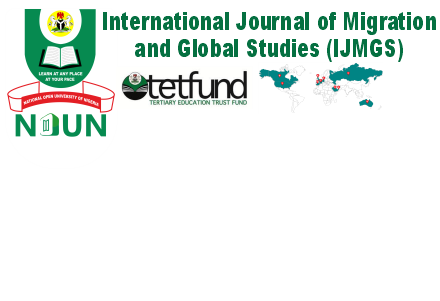Nigeria became an independent entity in 1960. But before this date, the various societies that make up the nation today did undertake activities that ensured their continuous existence. Some of these activities had to do with migration. Many of these ethnic groups trace their various origins to places where they migrated from. Migration therefore has to do with movement of people from one place or region to another. This movement to a large extent is determined by prevailing factors or forces such as environmental, economic, political as well as social. In Nigeria, migrations have occurred both within and without. Those movements that took place internally in Nigeria have to do with migration within while those movements that were from Nigeria to the other parts of the world have to do with migration without. These migratory activities however took place at different intervals: during the pre-colonial times during which many Nigerian ethnic identities moved and settled in different parts of Nigeria; the Trans-Saharan and Trans-Atlantic Slave Trade periods and the colonial period and post-colonial period.
The paper assessed migrations during the historical epochs mentioned above. The paper adopts the historical research methodology making use of secondary sources of information. The findings revealed that migration is a global phenomenon. The paper also reveals that in Nigeria, migration has dimensions which span different historical experiences of people. The paper recommends that, there should be a deliberate resolve on the part of individuals and government to create better conditions of living in Nigeria, in order to forestall massive migration of people to other countries of the world. The paper contends that internal migrations within Nigeria be encouraged as this will lead to stronger ties and unity of people in the country.
